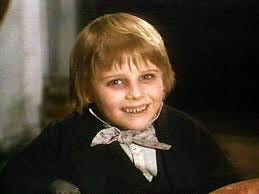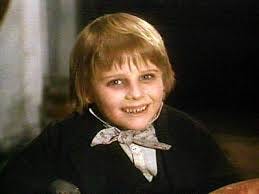Tiny Tim and Intersectionality
Tiny Tim and Intersectionality
Tiny Tim is oppressed. There is the obvious economic angle. But he is also disabled. His family is a group of ableists who do not respect his bodily autonomy. They will grab him, pick him up, and carry him to where they want him to be. They don’t ask him.
He is indeed white and a cis-gendered male, so he isn’t innocent on his intersectionality score. And worst yet, he is a professing Christian. Maybe he isn’t so oppressed after all.
Now, all of that is silly and exposes the nonsense students are taught in today’s state university classrooms. But the truth is that Tiny Tim solves a deep problem that baffles secular professors in our day. It is the problem of suffering. How can God be good when he allows little children to suffer?
Today, secular humanities classes like those at ASU’s Humanities Institute teach their students to count up their suffering points and blame others who have more privilege. This selfish philosophy is taught by miserable professors whose only hope in life is to make their students equally miserable because misery loves company. They scream out in a collective cry, “It’s not fair!”
Tiny Tim has a good case to make. He can join the cry and add his own voice to, “it’s not fair!” But he doesn’t. In fact, in one brilliant paragraph, Dickens shames the secular humanities professors of our day.
Bob Cratchit and Tiny Tim were at church. Did Tiny Tim raise his fist in hatred of God? Did he expose the church's power structures? Did he hate the children who he saw playing together for their privilege? He didn’t. What did he do? He did what we all need to learn to do when we encounter suffering: 1) He thought of how it can benefit others by 2) directing them to know Christ.
Mrs. Cratchit asks about how Tim was at church.
"As good as gold," said Bob, "and better. Somehow, he gets thoughtful, sitting by himself so much, and thinks the strangest things you ever heard. He told me, coming home, that he hoped the people saw him in the church because he was a cripple, and it might be pleasant to them to remember upon Christmas Day, who made lame beggars walk, and blind men see."
Pause and reflect on that for a moment.
Tiny Tim hoped that his suffering would be an occasion for others to know Christ. He didn’t ask, “why me,” he didn’t ask, “who has privilege,” he didn’t vow to fight the oppressive power structures that won’t make his life easier. He trusts God’s providence in his own life and sees a special role his suffering can play in serving others to bring them to a knowledge of eternal life.
In order to do this, Tiny Tim had to know his Bible. He knew who Christ was and why he healed. He knew the promise of salvation in Christ alone, and because of this, he could wish this same good for others.
Today’s humanities students are robbed of this opportunity by their humanities professors. Their professors can’t think like Tim. They can only complain and spend their days hating the world.
Learn to be like Tiny Tim. And don’t settle for professors who want to teach you grievance culture. Don’t sign up for their classes. They don’t know the peace of God, and they can’t pass it on to anyone else.
And so, as Tiny Tim observed, “God bless Us, Every One!”




